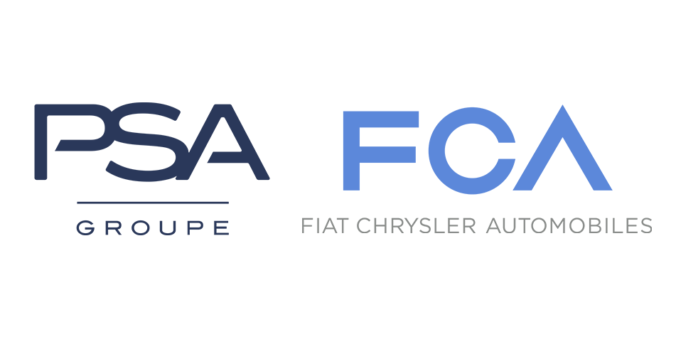PSA-FCA merger: what are the implications?

On October 31, 2019, PSA and FCA announced that they were holding talks regarding a 50:50 merger. While a lot has been said about it already, we decided to sum up the implications of the merger.
An automotive giant
To begin with, the newly created group will constitute the fourth-largest carmaker worldwide, with an estimated 8.7 million vehicle sales per year. This would put PSA-FCA on par with the top three car players, VW, Toyota, and Renault-Nissan-Mitsubishi.
At a time where investments in the three Megatrends (electrification, autonomous driving, and connected vehicles) come in the billions of dollars, size does matter. With such expenses and uncertainties, it is now nearly impossible for a carmaker to survive with a turnover of under 50 billion USD.
Beneficial complementarities
The two companies are very complementary in terms of geography and technology.
In Europe, the most competitive automotive market in the world, PSA-FCA’s combined sales will equal to 4.4 million vehicles per year. The newly born group will come up to VW, gaining around 25% of the European market.
PSA-FCA will also become very large in North America, with more than 2.5 million sales per year, thanks to FCA’s existing position in the region. This will give PSA direct access to the North American market that Mr. Tavares has been looking for already for several years.
In South America, PSA-FCA will be among the top 3 players with combined sales of 750 000 vehicles per year.
On the technology side, PSA will bring its know-how on “small” engines (both diesel and gasoline) and PHEVs/EVs while FCA would share its expertise in the V6 engine. PSA is stronger on manual gearboxes when FCA is more dominant on automatic ones. Moreover, FCA will benefit from PSA’s two modular platforms, CMP and EMP2, while introducing its longitudinal platform for D segment to the French carmaker.
Finally, one should also think about the cultural synergies: French, Italian, and even American mentalities are not that far, giving hope that the marriage will work over the long term. PSA has already proven with its recent acquisition of Opel that it can manage to put together teams from different countries with a common goal: to become more efficient.
Some weak points remain
Among the weak points, one immediately thinks about China, where PSA will sell around 120 000 vehicles this year and FCA around 80 000. Together, they represent less than 1% of the biggest market in the world.
Furthermore, they are in joint ventures with different Chinese partners that makes synergies hard at a first glance. While PSA is in partnership with Dongfeng (through DPCA) and has just announced that it would sell its stake in its JV with Changan, Fiat is in partnership with GAC.
Last but not least, both PSA and FCA are operating at a small portion of their local production capacity (less than 30%), so one may wonder how a merger would improve the situation. We can be sure that Mr. Tavares has some cards up his sleeves.
What does the PSA-FCA merger mean to suppliers?
Of course, suppliers are now waiting to see what will happen once the merger becomes effective.
First of all, as the merger has not been signed yet, it is still too early to know which process would be followed during the RFQ, development and serial life. One would argue that with Carlos Tavares being the CEO of the new entity PSA processes would prevail. In the meantime, several industry veterans mention that as FCA was split in its ways of working, “the Fiat way” in Europe and South America and “the Chrysler way” in North America, PSA ways of working would prevail in Europe and South America and FCA ‘s ones would dominate in North America.
Then comes the question of the supplier panel. As both companies would nearly double in size, there will be some supplier panels’ rationalizations. While one would think that this takes time, in our experience, such changes can happen much faster than expected.
“After the acquisition of Opel by PSA, many of Opel’s suppliers have exited the supplier panel as PSA had to rationalize the two panels being merged”, according to Stanislas Bailly, Managing Director of SNECI. “By the time they came to us to help them get a foothold back in PSA’s supplier panel, it was too late. On the contrary, we were able to help the suppliers that anticipated the changes and asked for support in their business with PSA beforehand. Some of them have even gained market share overall!”
“If I have one message to give to PSA and FCA suppliers, it is that they must be agile and ready to act quickly. Your competitors will do it, so waiting too long to decide how you will adapt your organization to the merged entity is a real danger”.
If you are an existing supplier of PSA or FCA and wish to know better how SNECI can assist you in Business Development, please feel free to contact us.








